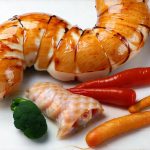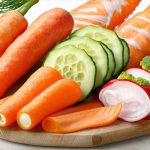Diarrhea is an incredibly common ailment, often unpleasant but usually short-lived. Most people experience it at least once in their lives, triggered by everything from a change in diet to a viral infection. While frequently resolving on its own within a few days, managing diarrhea effectively focuses largely on preventing dehydration and supporting the digestive system’s recovery. Diet plays a pivotal role here – what you eat (and don’t eat!) can significantly impact how quickly you feel better. This article will explore practical dietary strategies to help manage diarrhea symptoms and promote quicker healing, focusing on easily digestible foods and hydration techniques. Remember that severe or prolonged diarrhea warrants medical attention, but for most cases, a thoughtful approach to diet can make all the difference.
Understanding Diarrhea & Its Dietary Impact
Diarrhea isn’t a disease itself; it’s a symptom. It indicates your digestive system is working overtime to eliminate something – whether it’s an irritant, an infection, or simply food that wasn’t fully processed. This rapid movement through the intestines doesn’t allow sufficient water absorption, leading to loose, watery stools. The key dietary goal during diarrhea is to reduce the workload on the gut and minimize further irritation. Essentially, we want to give the digestive system a chance to rest and recover.
A poorly chosen diet can exacerbate symptoms, increasing discomfort and potentially prolonging the episode. Foods high in fat, fiber, or sugar can stimulate intestinal activity, making things worse. Lactose intolerance can also be a culprit for some individuals; dairy products might need temporary removal from the diet. Conversely, certain foods are gentler on the system and actively help to soothe inflammation and replenish lost nutrients.
The BRAT Diet & Beyond: What To Eat
The classic “BRAT” diet – Bananas, Rice, Applesauce, Toast – has long been recommended for diarrhea sufferers due to its bland nature and binding properties. These foods are easily digestible and can help firm up stools. However, the BRAT diet is somewhat limited in nutritional value and shouldn’t be followed exclusively for extended periods. Think of it as a starting point rather than a complete solution.
Expanding beyond BRAT, other excellent choices include plain crackers (saltines are often well-tolerated), boiled or steamed potatoes without skin, clear broths (chicken or vegetable), and cooked cereals like oatmeal made with water. Lean protein sources such as boiled chicken or fish can also be introduced gradually as tolerance allows. The focus remains on low-fiber, easy-to-digest options that won’t further irritate the digestive tract. Portion sizes should be small and frequent to avoid overwhelming the system.
Hydration: The Cornerstone of Recovery
Diarrhea leads to significant fluid loss, making dehydration a primary concern. Water is crucial, but electrolyte imbalances also develop during diarrhea due to the loss of sodium, potassium, and magnesium. Simply drinking water isn’t always enough; you need to replenish these electrolytes. Oral rehydration solutions (ORS) are specifically formulated to address this – they contain the right balance of water, sugar, and electrolytes.
Beyond ORS, other hydrating options include clear fruit juices (diluted with water), herbal teas (ginger or chamomile can be soothing), and broth-based soups. Avoid sugary drinks like soda or concentrated juice as these can actually worsen diarrhea by drawing more water into the intestines. Regularly sipping on fluids throughout the day is far more effective than drinking large amounts at once, which can sometimes trigger further discomfort.
Foods to Avoid During Diarrhea
Just as important as knowing what to eat is understanding what to avoid. High-fat foods are notoriously difficult to digest and can worsen diarrhea symptoms. This includes fried foods, greasy snacks, and rich desserts. Similarly, high-fiber foods like raw vegetables, whole grains, beans, and nuts should be limited – they stimulate intestinal activity and can contribute to loose stools. Dairy products can be problematic for those with lactose intolerance, so it’s best to temporarily eliminate them if you suspect this is a factor.
Caffeine, alcohol, and spicy foods are also known irritants that should be avoided during an episode of diarrhea. Artificial sweeteners, particularly sorbitol and mannitol, found in sugar-free products, can have a laxative effect. Finally, avoid excessively sweet foods as they can draw water into the intestines, exacerbating symptoms.
Returning to Normal: Reintroducing Foods
As your symptoms begin to subside, you can gradually reintroduce foods back into your diet. Start with small portions and observe how your body reacts. If a particular food triggers a return of diarrhea, eliminate it again for a while before trying it later. A gradual approach allows your digestive system to readjust without being overwhelmed. Continue prioritizing hydration even as you expand your dietary choices. It’s important not to rush the process; listen to your body and introduce foods slowly.
Ultimately, managing diarrhea through diet is about providing gentle support to your digestive system while ensuring adequate hydration. By focusing on easily digestible foods, avoiding irritants, and replenishing lost fluids and electrolytes, you can significantly alleviate symptoms and promote a faster recovery.


















